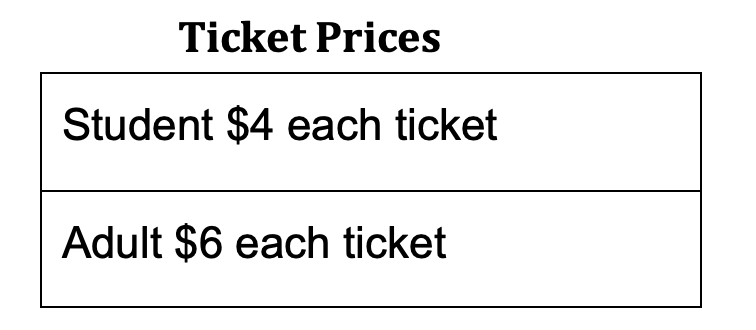1 x 15
15
Solve 3 x 2 x 4
24
Which expression uses the Distributive Property of Multiplication
A. 4 × 8 = (4 × 3) + (4 x 4)
B. 4 × 6 = 6 × 4
C. (2 × 3) × 4 =
(3 × 2) × 4
D. 12 x 6 = (10 x 6) + (2 x 6)
D. 12 x 6 = (10 x 6) + (2 x 6)
A bookstore uses 6 books in each shelf. There are 2 shelves in the bookstore. How many books are there in all?
6 x 2 =12
There are 12 books in all.
10 x 7 =
70
9 x 4
36
4 x (7 x 8) = (4 x 7) x ____
8
Use the Distributive Property to find the missing factor
6 x 7 = (4 x____) + (2 x 7)
7
Alma has 6 bags of beads. There are 8 beads in each bag. How many beads does Alma have?
6 x 8 = 48
6 x 40
280
4 x 7
28
3 x (2 x 6) = (3 x 2) x ___
6
Is this the distributive property? If not, what property is it?
4 × 6 = 6 × 4
No, it is the commutative property
A bakery has bagels displayed on shelves. Each shelf has 2 baskets. Each basket has 8 bagels. How many bagels are displayed in all? Write an expression that represents the amount.
2 x 8 = 16
90 x 3
270
7 x 8
56
Solve 4 x 5 x 10
200
Fill in the blanks
(4 × 3) + (4 x 4) = ____ x ______ = _____
4 x 7 = 28
Bethany earns $40 babysitting on Saturdays. How much does Bethany earn for babysitting on 4 Saturdays?
40 x 4 = 160
100 x 5
500
3 x 8
24
Is this the associative property? If not, what property is it?
12 x 6 = (10 x 6) + (2 x 6)
No, it is the distributive property
Solve
(10 x 6) + (2 x 7)
60 + 14 = 74
Jerome bought 2 adult tickets and 7 student tickets for a play. How much did he spend?

Students -7 x 4 = 28
Adults - 2 x 6 = 12
28 + 12 =40
60 x 50
3000